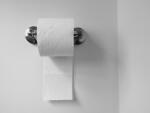
Someone who's never dealt with overactive bladder might think it has nothing to do with mental health. But you know better. Constant worry about an inconvenient urge to go or an embarrassing leak may lead to stress, anxiety, shame, depression, or frustration. And none of those feelings is great for your state of mind.
When you have overactive bladder, you need to urinate often—eight or more times a day. Suddenly, you'll have a strong urge to go—and if you can't reach a toilet soon enough, you might leak urine. At night, you may need to get up multiple times to use the bathroom.
Different people react differently to the symptoms, but these are some common reactions:
- Anxiety. People with overactive bladder never know when and where the urge to go will send them scrambling to find a bathroom. As a result, many live in constant fear of being caught where they can't get to a toilet in time. Some become so afraid of having an accident that they stop doing things they enjoy, such as taking road trips or going to movies, concerts, or ball games.
- Shame. Overactive bladder isn't anyone's fault. It's a medical condition, and a common one at that, affecting some 33 million Americans. Still, many people report feeling embarrassed or ashamed about having the problem. Some say it zaps their confidence or makes them feel less attractive.
- Depression. The stress of overactive bladder may contribute to depression in people who are vulnerable to that disorder. Several studies have shown that people with overactive bladder have an increased risk of becoming depressed. And that, in turn, may magnify feelings of low self-esteem and the tendency to withdraw from social life. Plus, depression tends to sap people's motivation and energy, so it may make it harder for them to seek help for their bladder symptoms.
- Frustration. Perhaps the most common reaction of all is frustration, based on a survey of more than 1,100 middle-age women by the National Association for Continence. It's annoying when nature is calling way too often.
In short, untreated symptoms of overactive bladder can cause a lot of stress. They can also have a detrimental impact on almost every facet of life.
In their private lives, people with overactive bladder may be reluctant to visit new places for fear of not finding a bathroom there. As mentioned earlier, some also curtail socializing, hobbies, shopping, and travel because staying home just seems simpler.
In their work lives, people may be less productive because of frequent interruptions for bathroom breaks. Overactive bladder may also influence where people decide to work, and for how long. In a study of U.K. adults with overactive bladder, about 19 percent of men and 16 percent of women with bothersome symptoms said their bladder issues had been a factor when choosing their jobs or work hours.
If all this sounds distressingly familiar, take heart. There are things you can do right now to lower your stress and boost your quality of life:
- Seek treatment for overactive bladder. Don't be afraid to talk with your doctor or seek out a specialist. There are ways to manage the symptoms that are causing you distress and interfering with your life. Behavioral treatments—such as limiting caffeine and alcohol, retraining your bladder, and doing pelvic muscle exercises—are often quite helpful. Medications are available as well. A combination of drug and behavioral treatments frequently works better than either alone.
- Learn methods of handling stress. Exercising regularly is a great way to lower your stress and lift your spirits. Spending time with supportive friends is another one, so don't let overactive bladder keep you home. Taking several deep breaths or practicing meditation can ease mental tension, and stretching can relax tight muscles.
- Develop strategies for public situations. If you have unpredictable urine leaks, wear pads or other absorbent products. There are many types on the market today, so look for a good fit, comfort, and convenience.
- Know the warning signs of depression. Symptoms include lasting feelings of sadness or emptiness, loss of interest in things you once enjoyed, hopelessness, irritability, fatigue, trouble concentrating, changes in eating or sleeping habits, feelings of worthlessness, and thoughts of suicide. See a doctor or mental health professional if you develop these symptoms.
- Talk back to negative thinking. When you think that needing to go all the time is just something you have to live with, remind yourself that effective treatments are available. When you think that you're the only one in this boat, remind yourself that millions of Americans are facing the same problem.
- Constant worry about overactive bladder may lead to stress, anxiety, shame, depression, or frustration.
- Seeking treatment for overactive bladder is the best way to improve your quality of life.
- It's also helpful to develop strategies for lowering stress, handling public situations, and banishing negative thinking.

















